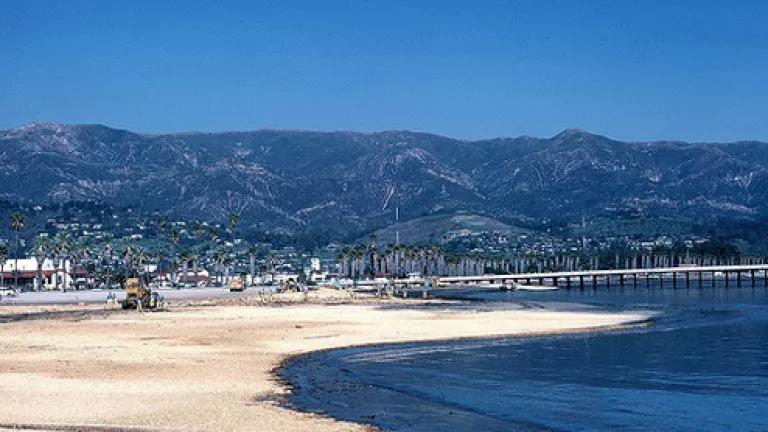
The catastrophe unfolding in the Gulf of Mexico puts a grim point on the acknowledgement that we need to wean ourselves from oil and develop cleaner forms of energy. This is particularly evident today in Washington, where Rep. John Garamendi (D-CA) and 19 co-sponsors have introduced a bill that will permanently ban new offshore oil and gas drilling off the California, Oregon and Washington coasts.
This makes good sense for a lot of reasons. The West Coast Ocean Protection Act of 2010 renews a longstanding moratorium that Congress let lapse during the Bush Administration. The State of California has wisely protected its near shore waters (0-3 miles offshore) from the inherent dangers of offshore for decades and federal waters (3-200 miles offshore) in resource sensitive regions like the Pacific have enjoyed similar protection since 1984. These moves reflect longstanding bipartisan opposition to new offshore oil development in this region.
This new bill by California’s Congressional leaders sets us on a path to a future that is cleaner, greener and more economically secure. The marine ecosystems of the West Coast are some of the richest on the planet, and support fishing and tourist economies that depend on clean healthy oceans. It doesn’t make any sense to sacrifice these priceless and sustainable natural resources for a short term energy fix.
Before this Gulf coast oil disaster, the Gulf of Mexico produced billions of dollars in annual seafood revenues -- $2.4 billion in Louisiana waters alone. Now, all those fisheries – crab, shrimp, oysters, a vast array of finfish species – are closed, and no one has any idea when they’ll open again. Or even if they’ll open again – some species may never recover sufficiently to allow commercial harvests. Meanwhile, the thousands of working families who derived their livelihoods from the Gulf –commercial fishers, processors, recreational angling guides, charter boat skippers, local seafood restaurants, the people who cooked and waited tables in those restaurants, motel and hotel owners – are left holding the bag. Many of them are facing financial ruin.
Rep. Garamendi’s bill will protect California and the west coast from a similar scenario. The hype emanating from BP’s public relations machine notwithstanding, the Gulf spill is not an anomaly. It is a predictable consequence of our nation’s oil dependence. Offshore drilling technology is anything but foolproof, and human beings are not infallible. Accidents happen and in the marine environment, the consequences are huge. We’re seeing it in the Gulf of Mexico now – and we saw it off California in 1969. In that year, a blow-out on a rig in the Santa Barbara Channel spewed more than three million gallons of crude on local beaches before it was capped. The West Coast Ocean Protection Act will ensure the safety and continued productivity of our offshore waters.
(Source: http://www.flickr.com/photos/32520523@N04/3551056792/)
Rep. Garamendi’s bill also buttresses California’s leadership role in the clean tech energy sector. We already have landmark legislation in California that is moving us away from fossil fuels, generating billions of dollars in business in alternative fuel research and development and addressing greenhouse gas emissions. This is the Global Warming Solutions Act of 2006, also known as AB 32. Unfortunately, full implementation of AB 32 is threatened by the Dirty Energy Proposition, a bad idea funded by a group of Texas oil refiners. Their false initiative has nothing to do with jobs and everything to do with oil companies hanging on to their old ways with all they’ve got. If this Trojan horse makes it to the November ballot and is passed, it will scotch California’s thriving clean tech industry, dry up the billions of dollars in venture capital we are now receiving and hobble us with a dirty, antiquated oil-based economy. We don’t need it.
What we do need is protection for our fertile Pacific waters and pass a federal climate change bill that puts a price on carbon, lowers our demand for oil and reduces our deadly addiction to oil. We need Congress to pass a bill that affirms the goals of AB 32 as a national priority.
It’s great to see that our western Congressional members have their priorities straight and are leading to protect our environment, our jobs, and our futures.